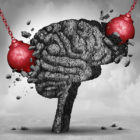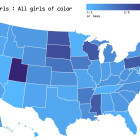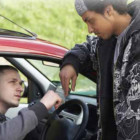
A majority of Americans favor rehabilitation and treatment of youth over incarceration, new national poll found. The survey, commissioned by the Campaign for Youth Justice (CFYJ), also found most Americans, 76 percent, believe youth should not automatically be sent to adult court. The poll was given to 1,000 U.S. adults.
"This public opinion research demonstrates Americans’ strong support for rehabilitation and treatment for court-involved youth, over incarceration and automatic prosecution in adult criminal court," stated CFYJ’s President and CEO Liz Ryan in a press release. "In light of this research, it is urgent that state officials accelerate youth justice reforms to reduce the incarceration of youth and prosecution in adult criminal court, and that Congress and the Administration reject deep cuts to juvenile justice funding."
Other highlights from the poll include:
A large majority of the public, 89 percent, would prefer youth to receive treatment, counseling and education.
Family is an important component in the juvenile justice system. Eighty-six percent of Americans favor involving the youth’s family in treatment while ensuring youth remains connected to their families.
Sixty-nine percent of Americans believe children should not be placed in adult prisons and jails.
Many Americans, 71 percent, favor providing more funds to public defenders to represent youth in court.
Eighty-one percent of Americans trust judges over prosecutors when determining if a child should be tried as an adult.









